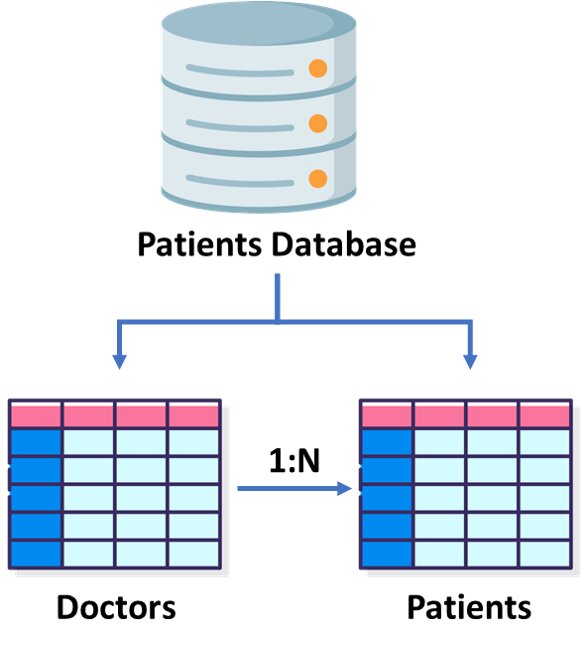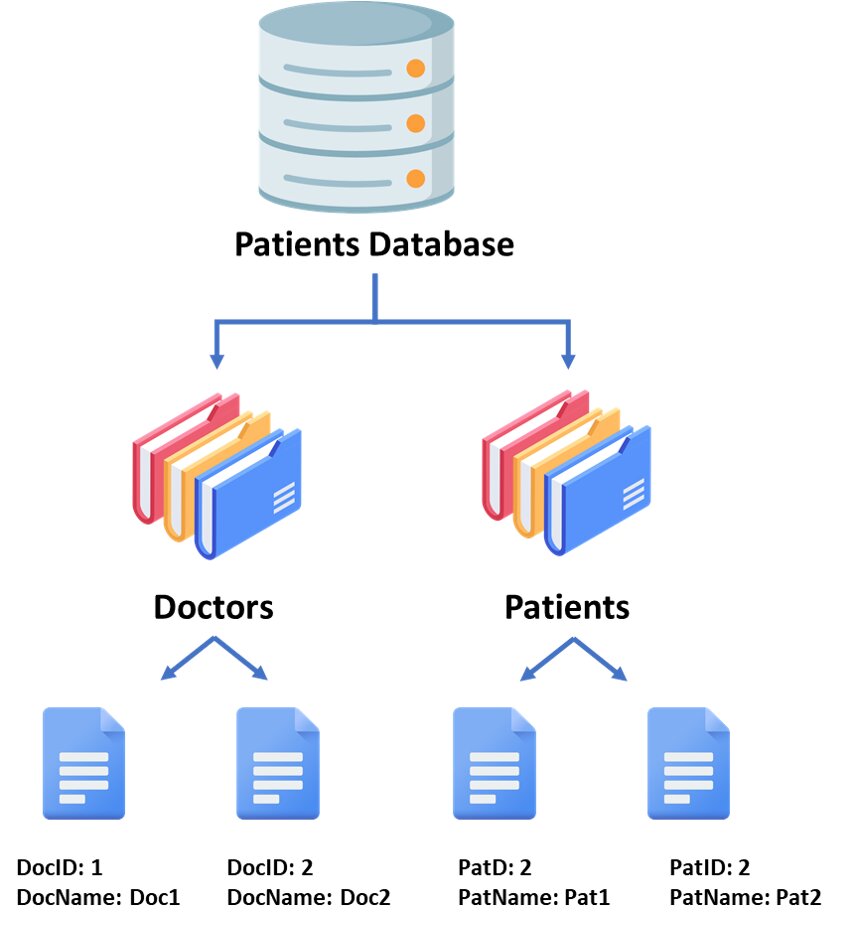Difference between SQL and NoSQL
This article designed for beginners will teach you difference between SQL and NoSQL. The tutorial includes concepts, such as what is a SQL, what is NoSQL, and more.
Databases are big containers where you can store your data. There are various types of databases used to store data in today’s market. SQL and NoSQL are two popular databases used by professionals to perform the required actions in the market. In this article on SQL vs. NoSQL, I will provide a detailed comparison of these two databases. Refer below:
What is SQL?
Structured Query Language, also known as SQL, manages and handles relational databases. With SQL, you can retrieve, access, manipulate and view structured data present in the databases in the form of tables. Here, kindly note that the data present in the tables can hold the following relations.
Self -Referencing Relationship – Records in table X are related to the same table
- One-to-One Relationship – A single record in table X is related to a single record in table Y.
- One-to-Many Relationship – A single record in table X is related to multiple records in table Y.
- Many-to-Many Relationship – Multiple records in table X are related to multiple records in table B.
- Self-Referencing Relationship – Is when a record in table A is related to the same table itself.
Please refer to the following example:
Here the patients database has two tables, patients and doctors. Each of these tables has multiple records, and every doctor can treat numerous patients, following the one-to-many relationship.
Best-suited Database and SQL courses for you
Learn Database and SQL with these high-rated online courses
What is NoSQL?
Not Only SQL, also known as NoSQL, is just the opposite of SQL. NoSQL is used to access and manage unstructured data. NoSQL has no specific query language and follows a dynamic schema. It has data stored in the format of collections and documents. Each database can have X number of collections; each collection can have a Y number of documents.
Please refer to the following example:
Here the patients database has 2 collections: patients and doctors. Each collection can have multiple documents i.e, the data values consisting of the patient ID, name, DoctorID, etc.
Now that you know what SQL and NoSQL are, let us understand the key differences between them.
SQL vs NoSQL
Here is a table representing SQL VS NoSQL:
| Comparison Factor | SQL | NoSQL |
| Definition | Structured Query Language is used for relational databases. | Not Only SQL is used for distributed databases. |
| History | Developed in the 1970s by IBM Corporation, Inc. | Developed in the 2000s by developer Carlo Strozzi. |
| Reason | To reduce data duplication in relational databases. | To allow scaling for non-relational databases. |
| Database Type | A relational database with data organized in tables and rows. | A non-relational database with data organized in collections and documents. |
| Language | Follows a specific language and does not vary from database to database. | Follows no specific language and varies from database to database. |
| Schema Type | Follows a predefined schema. | Follows a dynamic schema. |
| Query Level | Fits better for complex queries. | Does not fit well for complex queries. |
| Database categories | X number of tables with each table having Y number of records. | It can have a document, key value, graph, and wide-column database categories. Document – Stores each key with a documentKey-value – Each item in the database is stored as a key with its value.Graph – stored data of networkswide-column – store columns of data instead of rows |
| Base Properties | Follows the ACID Property ( Atomicity, Consistency, Isolation, and Durability). | Follows the Brewers CAP theorem ( Consistency, Availability, and Partition tolerance ). |
| Open Source | A mix of open-source and commercial software. | Open-source software. |
| Hierarchical Data Storage | Does not support Hierarchical data storage as it follows the tables style of storing data. | Fits better when compared to SQL as it follows the key-value pair way of storing data. |
| Online Processing | Used for Online Transaction Processing – OLTP. | Used for Online Analytical Processing – OLAP. |
| Scalability | Vertically scalable as you can load balance by optimizing hardware. | Horizontally scalable as you can load balance by adding more servers to the cluster. |
| Joins | Required to relate the tables in databases. | Typically not required. |
| Support | Offers excellent support and relies on all SQL vendors. | Offers limited support relied on the community. |
| Popular examples | Oracle, PostgreSQL, MySQL, MS SQL Server, SQLite | Redis, MongoDB, Apache HBase, Cassandra |
Pros and Cons of SQL & NoSQL
Pros and Cons of SQL
| PROS | |
| Knowledge | No prior knowledge of coding is required. SQL is similar to English and is very easy to learn. |
| Flexibility | SQL supports and optimizes underlying implementations and is highly portable. |
| Performance | With multiple optimization techniques and normalization, SQL can meet the high demand and maximize performance. |
| CONS | |
| Limited Scaling | SQL provides limited scaling to specific projects. It does not support horizontal scaling. |
| Rigid structured | SQL supports pre-defined schema. So if a user wants to change the schema, it will involve downtime. |
| Accessibility | SQL comes with a complex data structure making it challenging for the users to access data. |
Pros and Cons of NoSQL
| PROS | |
| Data Models | Follows dynamic schema making it easy for the users to change the schema based on the requirement. |
| Powerful data structures | NoSQL supports complex data structures for the users to store various data types. |
| Scalability | NoSQL supports horizontal scaling without significant single-point failure. |
| CONS | |
| ACID Property | Does not support the ACID property, limiting users to provide reliable functions |
| Distributed systems | Since NoSQL supports distributed systems, problems could be distributed over the entire system |
| Lack of flexibility | With no abstraction, NoSQL engines fail to optimize their queries. |
So, based on the pros and cons of SQL and NoSQL, you must choose a suitable database for your business requirements. With this, we end this article on the comparison between SQL and NoSQL. We hope you found it informative.
Top Trending Tech Articles:Career Opportunities after BTech Online Python Compiler What is Coding Queue Data Structure Top Programming Language Trending DevOps Tools Highest Paid IT Jobs Most In Demand IT Skills Networking Interview Questions Features of Java Basic Linux Commands Amazon Interview Questions
Recently completed any professional course/certification from the market? Tell us what liked or disliked in the course for more curated content.
Click here to submit its review with Shiksha Online.
This is a collection of insightful articles from domain experts in the fields of Cloud Computing, DevOps, AWS, Data Science, Machine Learning, AI, and Natural Language Processing. The range of topics caters to upski... Read Full Bio





